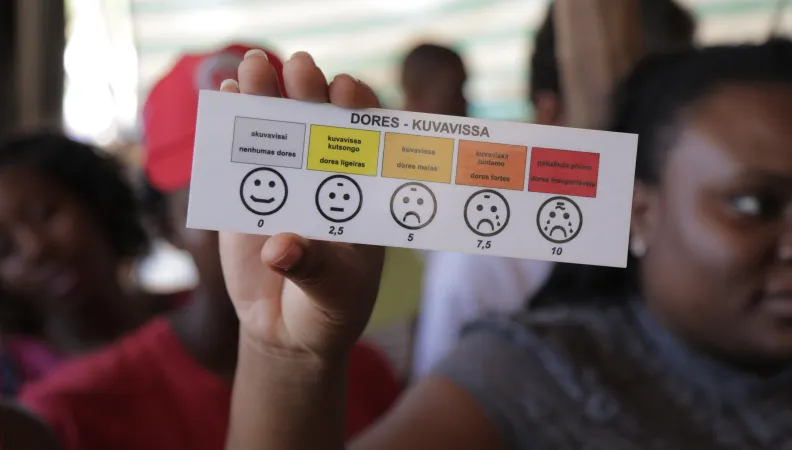Share the page
Improving palliative care and pain management
Project


-
Project start date
-
Status
Completed
-
Project end date
-
-
Project duration
-
3 years
-
AFD financing amount
-
471344 €
-
Country and region
-
Location
-
Chibuto, Xai-Xai et Massingir districts
-
Type of financing
-
Beneficiaries
-
Douleurs Sans Frontieres (DSF)
-
Type of beneficiary
-
CSO
AFD supports the NGO Douleurs Sans Frontières in setting up a pilot process for the follow up of patients for better pain management and improved palliative care. The project focuses on home-based patients in Chibuto, Xai-Xai and Massingir districts.
Context
In Mozambique, few private actors work on pain management and palliative care. There is still no clear guidance and health strategies in place on these topics, despite the recognition of their relevance by Mozambique’s Ministry of Health.
Thanks to the successful work of Douleurs Sans Frontières (DSF) and its partners in the districts of Chibuto, Xai-Xai and Massingir since 1996, Mozambique’s health authorities expressed their willingness to reinforce the actions already undertaken in palliative care, pain management and home-based care in these pilot districts.
Description
The project’s main areas of work include:
- Training sessions with health workers and physicians in pain management and palliative care;
- Pain and palliative care awareness sessions for 80 home-based care workers and 15 traditional physicians;
- Purchase of first aid kits to support the work of home-based care workers and hygiene items to assist the most vulnerable and bed-ridden patients;
- Support to community partner associations in the operational and institutional areas;
- Support to the Mozambican Hospice Palliative Care Association (MOPCA) for the annual evaluation of the home care system;
- Support to MOPCA and the Faculty of Medicine of Maputo for lobbying activities at the Ministry of Health (implementation and coordination of the teaching of a module "pain and palliative care" in the current curriculum).
Impacts
- Capacity building of the Mozambican Hospice Palliative Care Association (MOPCA) so that it becomes a civil society actor able to develop, in collaboration with the health authorities, the strategies and services needed for better pain management;
- Support to 3,000 patients per year over 3 years;
- Better access for patients living in remote rural areas to health units offering quality care, which builds trust between patients and health units (humanization of care).


